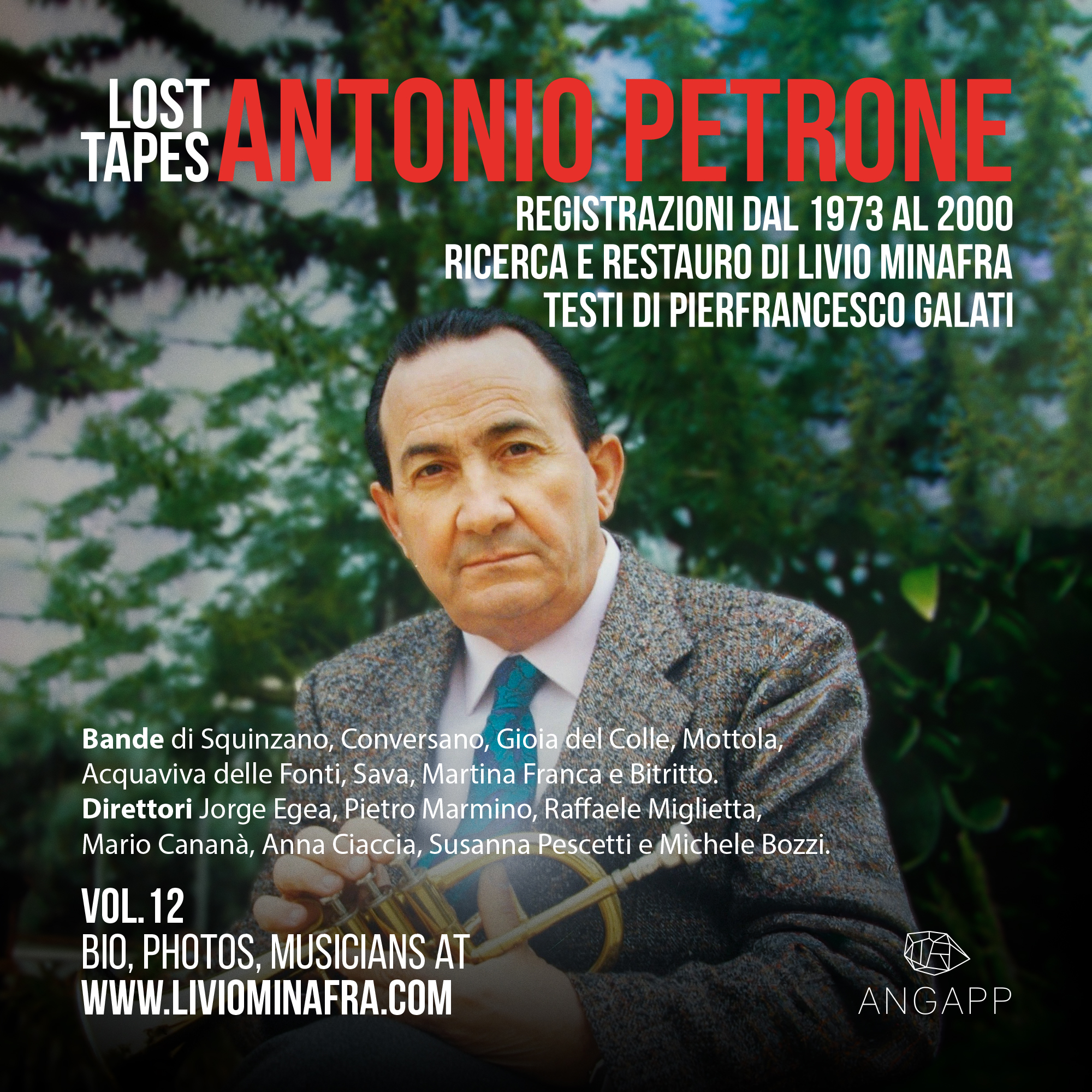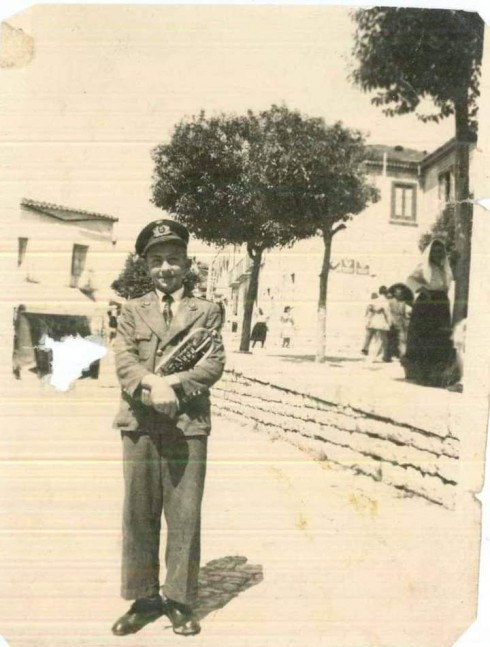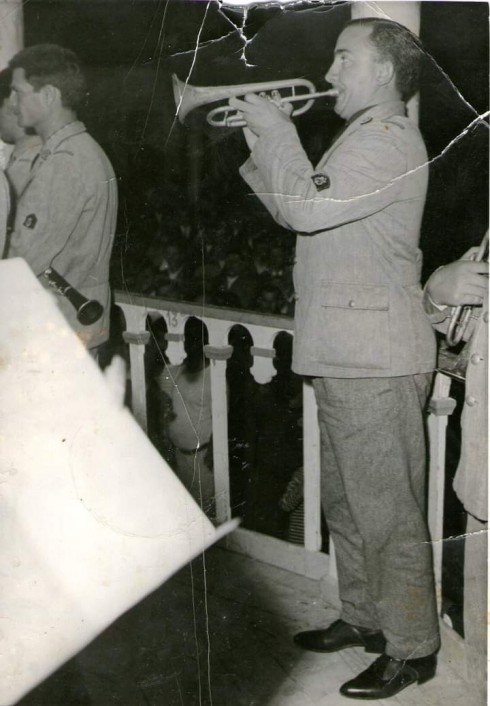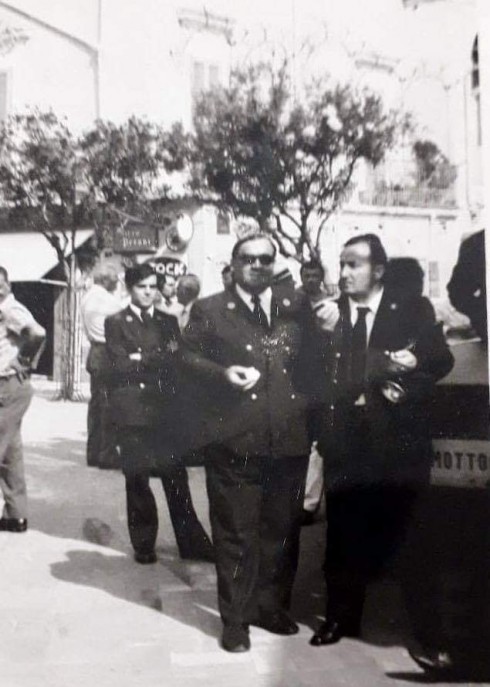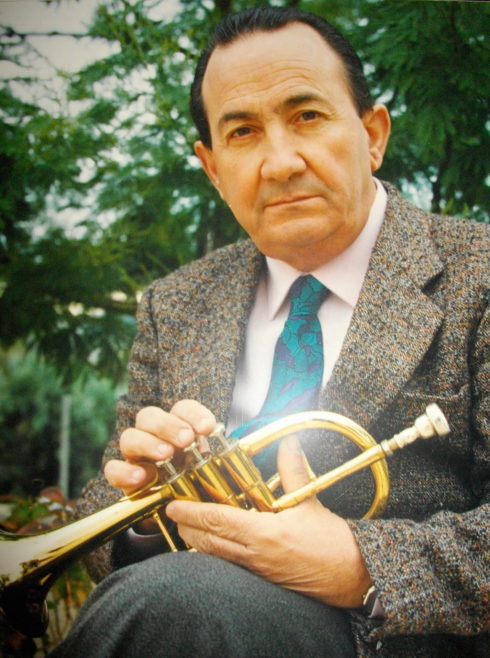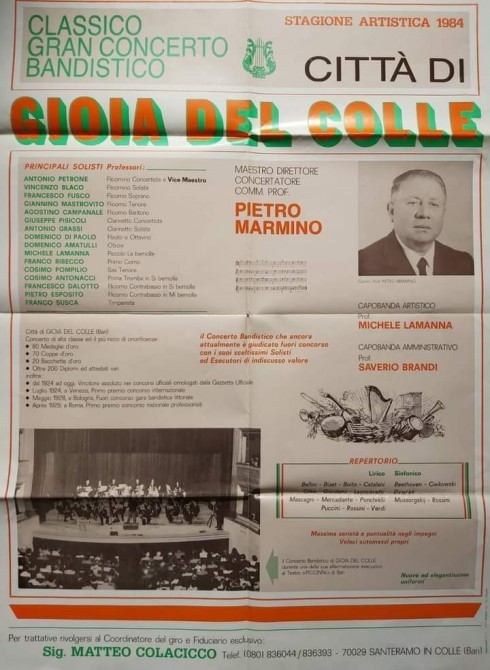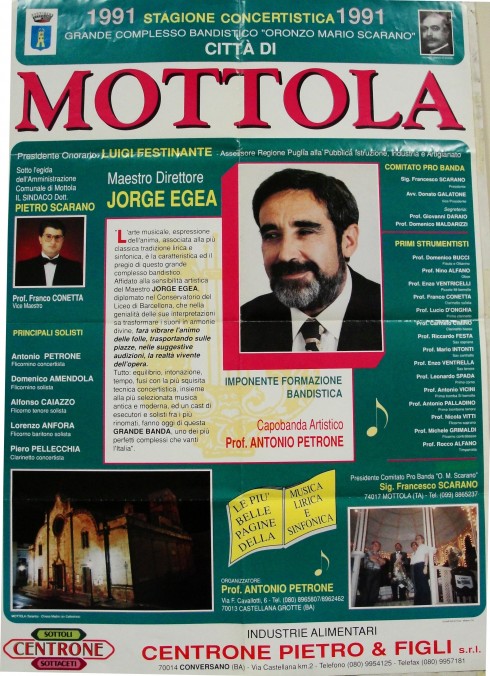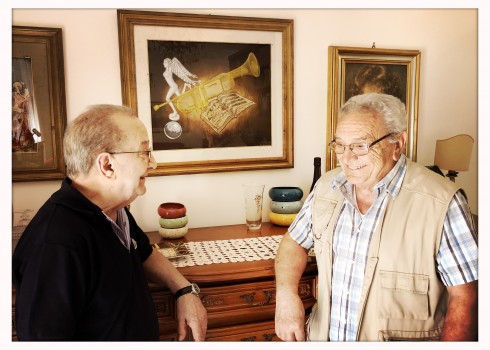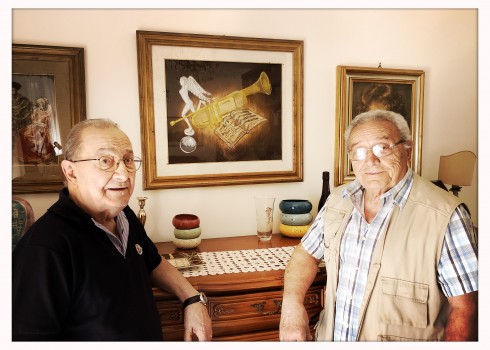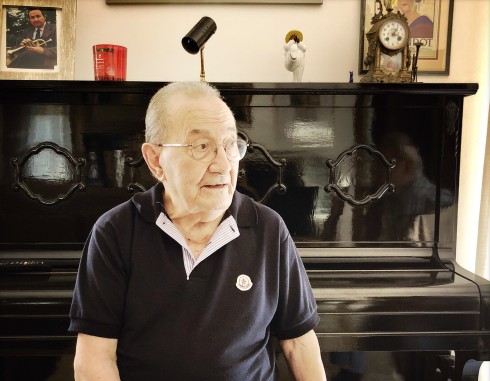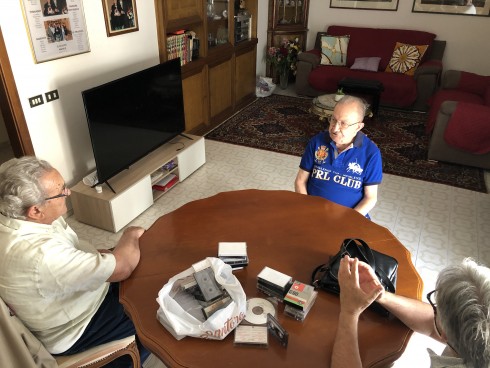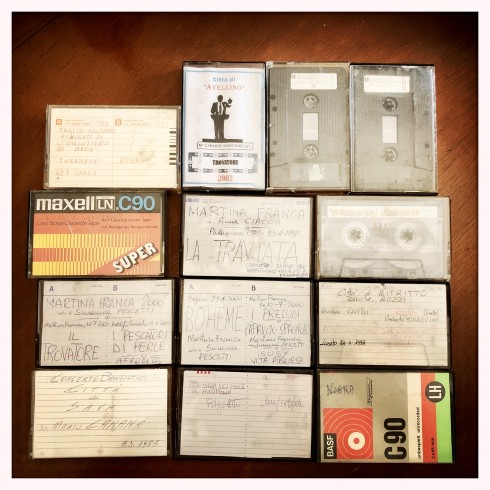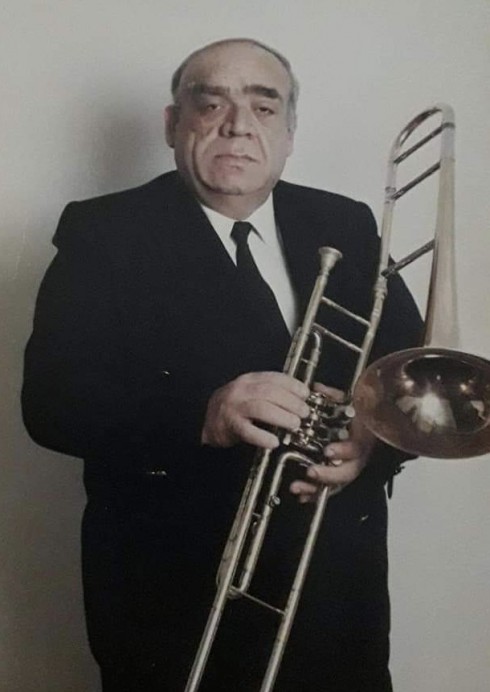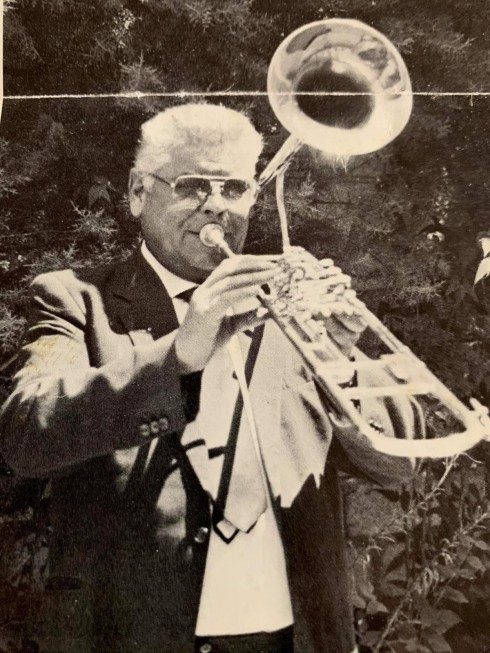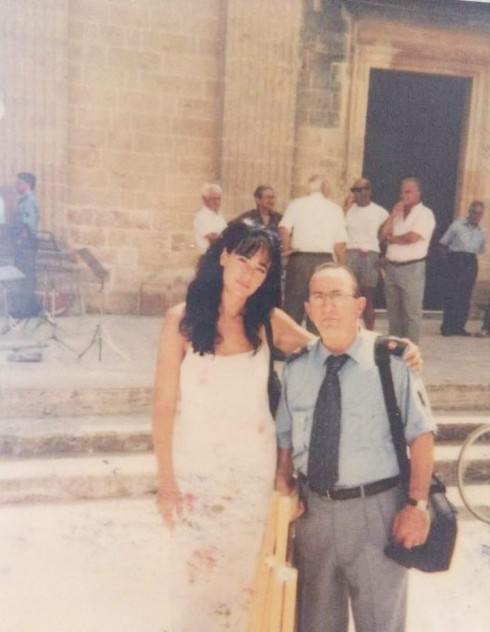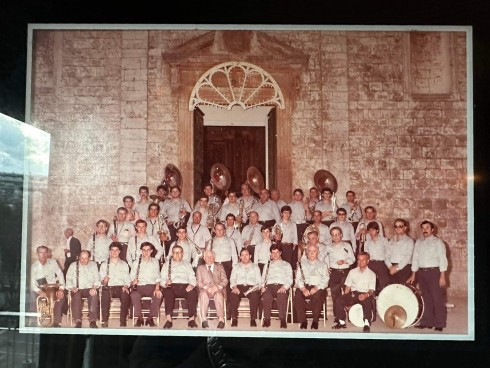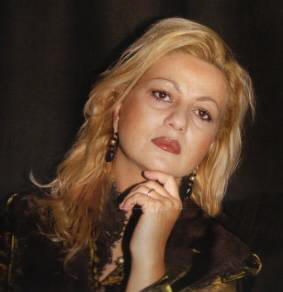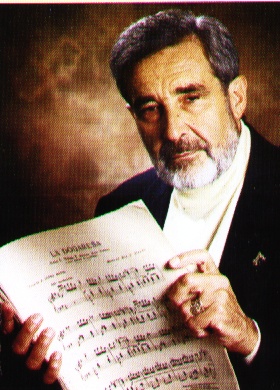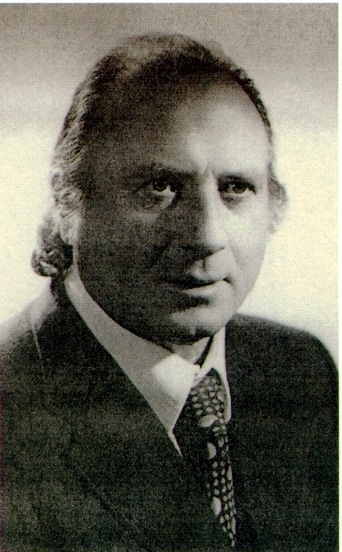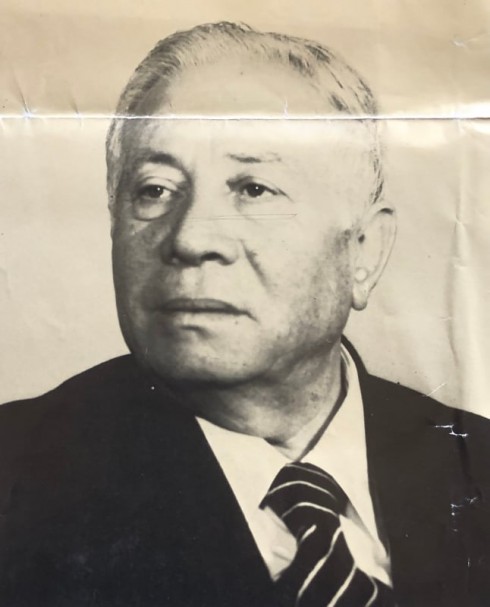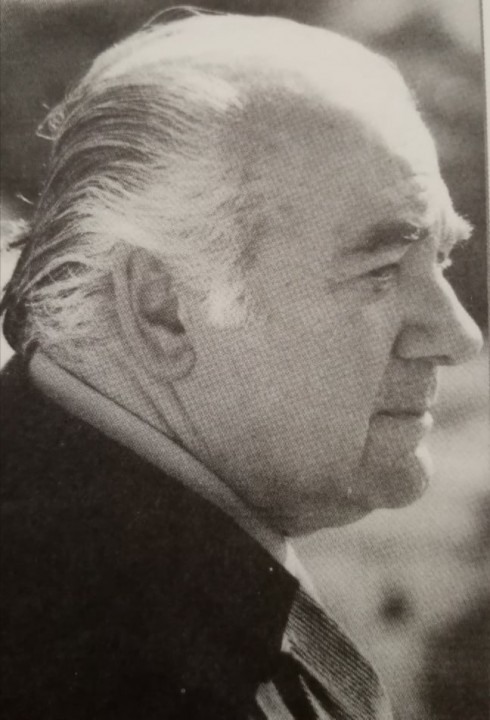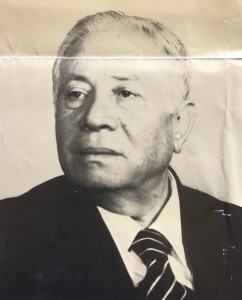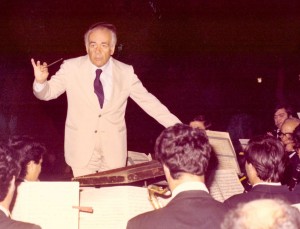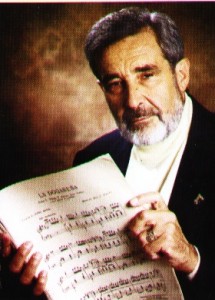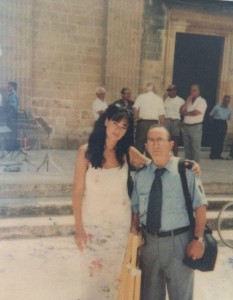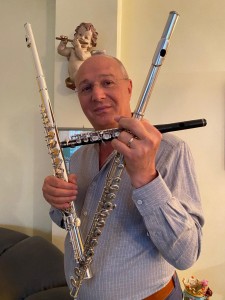Title: Lost Tapes Vol. 12 Antonio Petrone
Groups: Bandas of Mottola, Squinzano, Conversano, Gioia del Colle, Acquaviva delle Fonti, Sava, Martina Franca and Bitritto conducted by Jorge Egea, Pietro Marmino, Raffaele Miglietta, Mario Cananà, Anna Ciaccia, Susanna Pescetti and Michele Bozzi
Years: 1973-2000 © 2023
Graphic: 3Heads Agency
Text: Pierfrancesco Galati
Translator: Rita Valentini
Recorders: Domenico Fiore, Aldino Miceli, Paolo Tricase, Tonino Santese and Michele Pichierri
Discover, digitalization, sound track selection, editing: Livio Minafra
Mastering and restoration sound engineer: Gianluca Caterina
Label: Angapp Music – It
Produced by: Livio Minafra
«Trumpeter, don’t worry, the fur of the cursed horse shines!»
Trumpettiè, nun t preoccupà, a cavallo jastumato ci luccica u pilu! This was the answer that Padre Pio himself gave to Antonio Petrone on June 25, 1958! The Band of Lecce directed by M° Alfredo D’Ascoli played in fact that day in San Giovanni Rotondo and Petrone, who was the leading soloist of the ensemble and who was also native of the same small town as Padre Pio – Pietrelcina, approached Padre Pio making himself recognized and asking him why there was so much envy around his own figure as a soloist. Question to which Padre Pio answered laconically in the Pietrelcina vernacular.
Episode as extraordinary as his meeting with Maria Callas, who listened to Petrone in Capri in 1964 during a performance with the Banda di Squinzano conducted by Gioacchino Ligonzo in which they performed Trovatore. Callas listened to the entire concert and after complimenting him, she wanted him for dinner by candlelight. Incredible but true stories of days gone by. But let’s rewind the tape.
Antonio Petrone was born in Pietrelcina (Benevento) on 1 April 1934. From the very first time he showed love for music; his parents allowed him to attend the musical lessons given by his father’s brother Vincenzo Petrone, thus joining the local town band “Gran Concerto Musicale di Pietrelcina” and making his debut on April 14, 1946 with a cylinder sopranino flugelhorn. At the time, the band represented the redemption of the middle and lower population, often illiterate, thirsting for opera music in the squares. After some time and after a parenthesis in the Banda di Sora (Frosinone), in 1951 he was called to serve as concert flugelhorn player in the Banda di Castellana Grotte under the direction of Umberto Minervini. Being a soloist meant, compared to the other band members, becoming a privileged person: thus not sleeping on uncomfortable and rusty cots in lodgings made available by the Comitato Feste Patronali (Patronal Festivals Committee), very often found in local school buildings or residences; not making processions and not having to deal with begging, cooking and every logistical need. In addition, the soloists were paid handsomely and the committee provided them with a hotel and restaurant.
Their greatest satisfaction was the artistic success with the sound of their instruments which were supposed to be able to evoke emotional response, bring tears to the eyes of those peasants and children of the people with tired faces, marked by wrinkles, from the many days of work spent in the countryside under the scorching summer sun and with modest houses, but with great sensitivity. Future stages of Petrone were 1953 and 1954 respectively with Casalanguida (Chieti), maestro Angelo Basilico D’Annunzio, and Roccanova (Potenza) under Guido Emanuele’s guidance and then move into the great Banda di Squinzano (Lecce) in 1955 under the direction of Pino Rosiello, from Vieste (Foggia), who turned out to be one of the best substitutes for Gennaro Abbate, who was elderly at the time but still alive.
In 1956 a significant interruption became necessary due to Petrone’s military service in Bari; discharged in 1957 he was again engaged as a concert flugelhorn by the band of the Apulian capital directed by maestro Pasquale Esposito, along with his daughter Lina; the presence of the latter represented a tangible example of the right, natural affirmation of women in a field, that of band conducting, dominated till then by men only.
The following two years in Lecce 1958-1959, under the direction of maestro Alfredo D’Ascoli: another great banda. For many years the performances of Lucia di Lammermoor and Trovatore were considered memorable and today we can listen to them again with Petrone but not with the aforementioned ensemble.
Then it was the turn of the Band of Mottola (Taranto), with which he began a long association, although discontinuous. He initially had Dino Milella as director – 1960 – and over the next two years with Maestro Michele Lufrano (formerly soprano flugelhorn of the Banda di Squinzano under the direction of Gennaro Abbate); he spent the next two years in Squinzano with the great Gioacchino Ligonzo.
In 1965 he returned to Mottola with Ligonzo to move later on, from 1966 to 1970 to the province of Bari, providing his art and his class in the Banda di Gioia del Colle with Alfonso Matrella and the Banda di Conversano still under the direction of Ligonzo and then Nicola Centofanti.
The following three years – 1971/1973 – he returned to Mottola, with the young and promising Spanish director Jorge Egea, who after some successes in the major theaters in Europe, arrived in Puglia, first directing the Banda di Squinzano in 1966 and then Mottola. With this team he performed the Hispanic repertoire for the first time, brought by the maestro Egea, as the zarzuelas La Picara Molinera by Pablo Luna, but especially the Dogaresa by Rafael Millàn.
From 1974 to 1975 we find him in Salento in the Banda Verde di Nardò directed by Gino Bello to then land in Castellana Grotte (Bari) with Amerigo Piccione; he spent the following years in Acquaviva delle Fonti (Bari) with maestro Raffaele Miglietta, to then land in Lecce under the direction of Franco Lentini; finally, Conversano (Bari) with Pietro Marmino. In the years 1982 and 1983 Squinzano (Lecce) again with Jorge Egea, to then move on to Gioia del Colle (Bari) again Marmino.
1984 and 1985 instead saw him in an almost bandistically unknown public square, namely Sava, conductor Mario Cananà, who still fondly recalls the experience in Sava: “Sava was a winning bet for me, because no one in those years would have thought that an unknown name like that of Sava, would have given a hard time to the high-sounding names of Lecce, Squinzano and Gioia del Colle!! In addition, I had with me the best soloists of the moment, one of all the great Antonio Petrone on flugelhorn…” The following year it was the turn of Manduria (Taranto) with Maestro Mario Ciervo.
In the years 1988 and 1989 we find him in Acquaviva delle Fonti with Mario Liguori and from 1990 to 1992 in Mottola again with Jorge Egea before moving on to Castellana Grotte with Maestro Pirondini.
In the 1994 artistic season there is Chieti, in the last band season of maestro Nicola Centofanti, to move to Castellaneta (Taranto) with Guglielmelli in the years 1995 and 1996. From 1997 to 2001 Petrone is in Martina Franca with the presence of two female directors, namely Anna Ciaccia and then Susanna Pescetti and then again two women at the head of the Banda di Castellana Grotte: Maria Amato and Paola Vizzi. He ended his career in 2008 with the Avellino Banda, conductor Carmine Santaniello.
Antonio Petrone has always played a Rampone & Gazzani cylinder sopranino flugelhorn (flicornino), except in the 1980s when he played a piston Couesnon one sold by his colleague Cataldo Roselli, tenor flugelhorn soloist.
Nominated Knight of the Republic by Giorgio Napolitano on 27 December 2014, he now lives between Castellana Grotte and Pietrelcina.

 English
English Italiano
Italiano